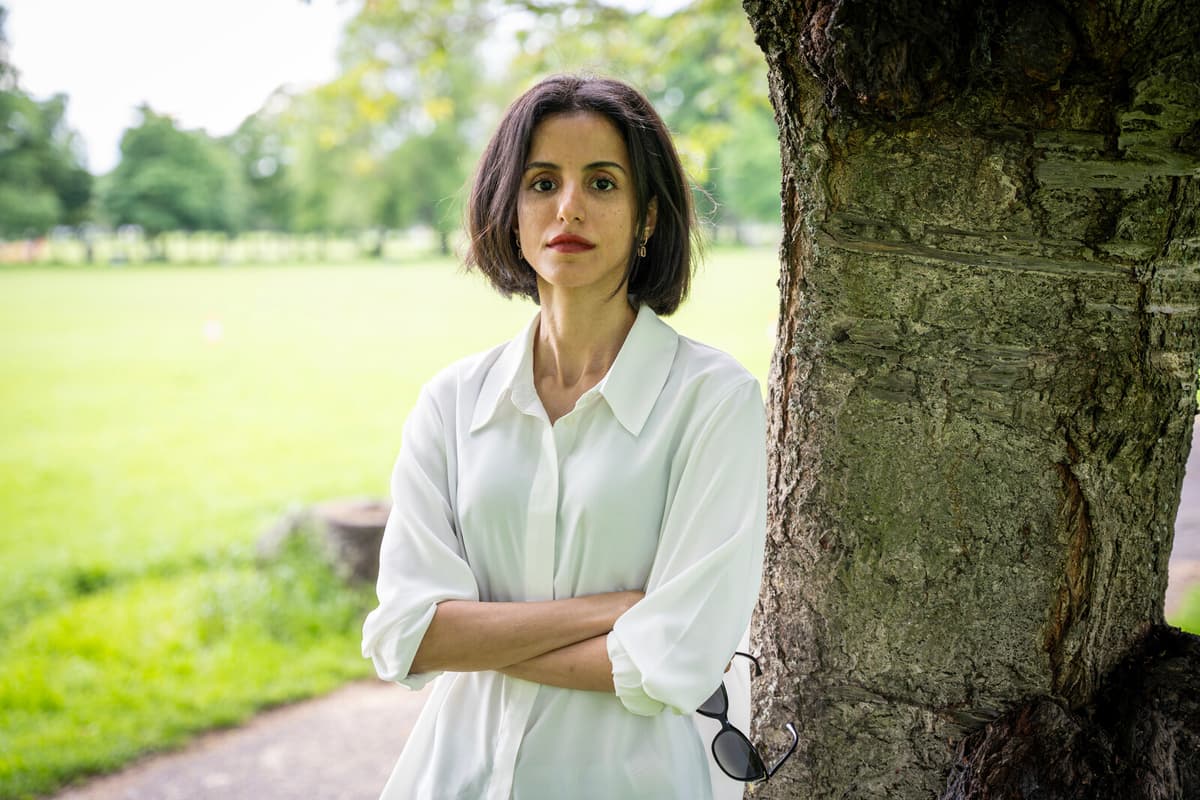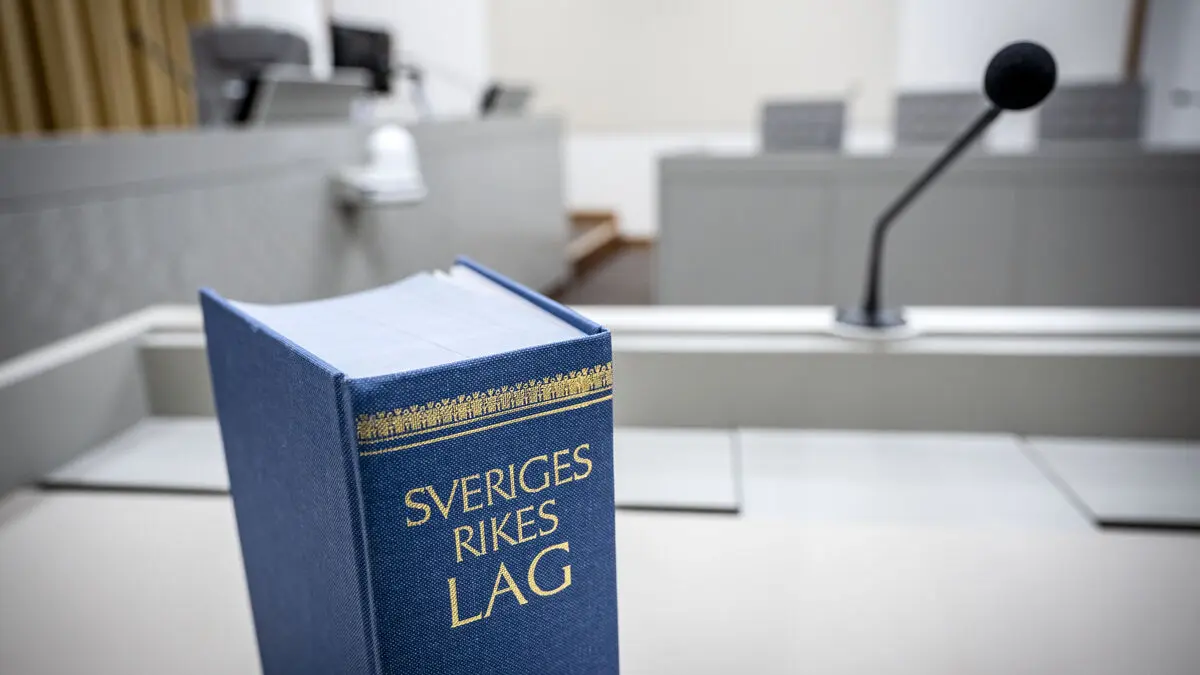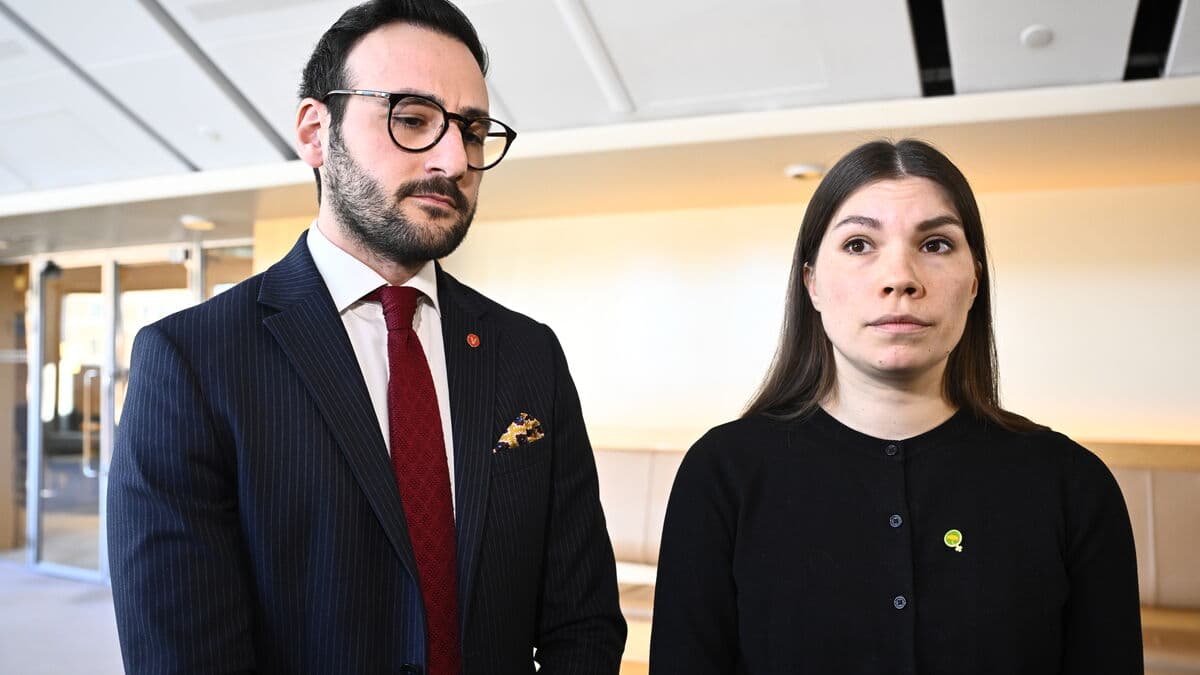Thirteen years old, the initiation began. Until then, growing up in Saudi Arabia had been relatively effortless, but with adolescence came the rules.
They started teaching me the laws, what was expected of me as a woman. That God has decided that the woman should be obedient to the man and leave her fate in the hands of the man.
Fawzia al-Otaibi has just been granted asylum in the United Kingdom. The white wall behind her is adorned with a single bookshelf with a stack of books and a few decorative items.
Life is okay here, but it's on pause. I won't be able to start living until my sister is free, she says over Zoom.
Back home in Saudi Arabia, her sister Manahel has been imprisoned for three years. In November 2022, both sisters were called in for questioning, but Fawzia sensed trouble and fled to Bahrain. Manahel was arrested, abused, and sentenced to eleven years in prison. The eldest sister, Maryam, has an arrest warrant and a travel ban against her and lives her life within the four walls of her home.
The sisters' crime? Posts on social media – and a hashtag that demanded the end of Saudi Arabia's system of male guardianship.
Male Guardian
Fawzia, Manahel, and Maryam al-Otaibi had begun questioning the conservative gender roles early on. Fawzia was kicked out of school time and time again. Once, the principal gathered all the students and teachers and pointed at Fawzia: she's a bad girl, no one should hang out with her.
The principal thought I was dangerous, that I could influence other girls negatively. And in Saudi Arabia, children are punished by being beaten – but I refused to be beaten or humiliated. That's when I got expelled.
In the end, the sisters had had enough and decided to flee their home country. It was only then, in adulthood, that they realized that Saudi women are, in practice, minors. Only with the permission of a male guardian can they obtain a passport and travel, study, and open bank accounts. The resistance was summarized in a hashtag: #EndMaleGuardianship.
It became huge. It became almost like an explosion among Saudi women. Even women who didn't know they had rights started talking about it.
The pressure on the authorities became very great, both within the country and from outside.
"Western" clothes
That the outside world began to interfere and ask questions became the drop that overflowed the cup for the regime, according to Fawzia al-Otaibi. In 2019, the sisters' father was called in by the police and offered a "solution".
The police called in Dad and said: "You can kill your daughters, and we'll call it a family matter". He was so shocked.
Shortly after, the police knocked on the door at home.
First, they took Maryam, then me.
The arrests received international attention, and the sisters were released, but only a few years later – in 2022 – the third sister, Manahel, was arrested. She was charged with crimes under Saudi Arabia's cybercrime law, which often equates social media activity with terrorism, after she published workout videos and pictures of herself in "Western" clothes.
Stacks with a pen
According to the prosecutor, Manahel had led "a propaganda campaign to get Saudi girls to condemn religious principles and rebel against customs and traditions". For this, she was sentenced to eleven years in prison, a sentence that has recently been reduced to five. Fawzia was accused of the same crime, but fled the country as soon as she was called in for questioning.
Manahel, who suffers from MS, is denied medical care in prison and is rarely allowed to contact her family. And as Fawzia has become more and more outspoken, Manahel has had to pay the price.
They broke her legs and stabbed her in the face with a pen. Then they forced her to call home and say that I should stop talking.
But Fawzia al-Otaibi has not been silenced.
They won't get me to stop talking. I've had patience, hoped it would resolve itself, but it never ends.
The dream: Going out with the sisters
Since Crown Prince Mohammed bin Salman took office as Prime Minister in 2022, he has worked hard to wash the image of the Kingdom of Saudi Arabia. Several legal reforms have, on paper, given women increased rights. But it's all a facade, a castle of lies, according to Fawzia al-Otaibi. Women who believed in the Crown Prince's promises have continued to be arbitrarily arrested and sentenced to long prison terms.
Yes, women are allowed to drive. But with everything else, like the male guardianship, for example... I haven't seen any change.
Fawzia al-Otaibi no longer has any high-flying plans. She just dreams of being with her family.
I want to go out with my sisters, do the things we've dreamed of our whole lives. Be able to go out together and move around in places we weren't allowed in Saudi Arabia. Everything belonged to the men.
The oil-rich and ultra-conservative Saudi Arabia, which makes up most of the Arabian Peninsula, is an absolute monarchy ruled by the royal family (the House of Saud).
Salman bin Abdul Aziz is the king and thus has all the power. But in practice, the country is ruled by the aging king's son, Crown Prince Mohammed bin Salman, who, since a royal decree in 2022, is also the country's Prime Minister.
The royal family has a firm grip on Saudi Arabia. The country has no political parties and no elected parliament. The government is based on the Koran and Islamic law, Sharia.
Human rights groups, such as Amnesty International and Human Rights Watch, regularly accuse Saudi Arabia of arbitrary arrests, torture, and capital punishment, which is also imposed on children. Executions are very common, and freedom of speech is severely restricted. Criticism of the royal family, the government, Islam, and religious leaders is strictly punished.
Source: National Encyclopedia, Country Guide/UI






